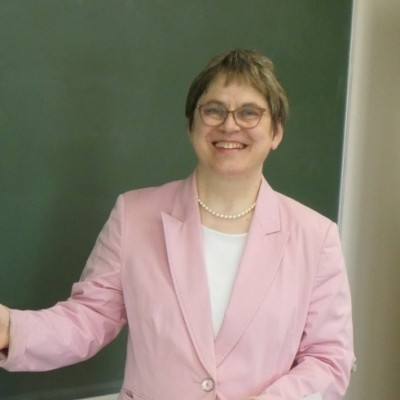Sessions / CEFR and Language Portfolio
CEFR-informed grammatical features of academic prose #2814
This presentation attempts to relate Developmental Progression Index of Grammatical Complexity (DPIGC) in academic prose proposed by Biber et al. (2011) to the six CEFR levels. First, I will compare grammatical features in the index with those in the English Grammar Profile and then propose CEFR-informed index of grammatical complexity of academic prose. A series of corpus-based studies by Biber and his colleague (Biber 2006, Biber & Gray 2016, among others) reveal that grammatical features frequently appearing in academic prose differ drastically from those in conversation. The former uses dependent phrases functioning as pre-and post-modifiers of the head noun, while the latter uses dependent clauses functioning as constituents of other clauses such as verb complements and adverbial clauses. Based on these findings, Biber et al. (2011) proposed the DPIGC. This index, however, is not well recognized by language professionals working in the area of EAP, hard-CLIL and EMI, although they aim at the appropriate uses of academese. One of the reasons for this lies in the lack of studies which relate the DPIGC to more widely accepted proficiency scales: e.g., the CEFR’s six proficiency levels. Hence, this presentation provides a clear CEFR-based descriptors of grammatical complexities in academic prose.
Using the CEFR-focused Action Research Model - Reflections on two years of research #2655
The JALT CEFR & LP SIG is supporting teacher-researchers through a collaborative Kaken research project entitled “Language Education reform using action research: Putting CEFR’s educational principles into practice” since 2020. During the Forum, project participants will reflect on their research projects they conducted so far using the CEFR-focused Action Research Model (CARM) developed by the SIG. The SIG Forum will be an opportunity to discuss examples from researchers’ intermediate outcomes in relation to the CARM model (= AR / CEFR aspects) as good model case studies. Forum participants are encouraged to engage and reflect on their current practice and consider how the CEFR and CARM might be utilized in their own contexts. The Forum will conclude with a discussion of the strengths and weaknesses of the CARM model and the goals for the final year of the KAKEN project. The Forum is open to everyone interested in intending to conduct research in the field of foreign language teaching and learning especially using Action Research and/or the CEFR – CEFR CV as a tool. The Forum intends to foster sharing and peer-learning.
Learner autonomy and their attitude towards the electronic portfolio #2881
In recent years, quite a few studies have dealt with an issue of how learners autonomously learn, and the effect of an electronic version of portfolio (e-portfolio) on learner autonomy. Nevertheless, the number of studies that highlights the relationship between learner autonomy and their attitude towards e-portfolio seems to be limited. The purpose of the present study was to investigate the correlation between the university students’ learner autonomy and their attitude towards the e-portfolio, and the students’ assessment on the e-portfolio in terms of the improvement of their learner autonomy. The participants were first-year university students who took a general English course at a private university in Tokyo. The online surveys were administered at three points in a year while semi-structured interviews were also conducted twice in the same year. The participants were asked to use the e-portfolio that was shared with the teacher during the experimental year. The survey data was analyzed by the SPSS software, and the Pearson correlation coefficient. The results showed that there was a strongly positive correlation between the level of learner autonomy and their attitude towards e-portfolio, which indicates that students who are more autonomous tend to possess a positive attitude towards the e-portfolio.
(Re)imagining language education in relation to the CEFR/CV and the CEFR-J #3118
Since the publication of the CEFR in 2001, policymakers, researchers and teachers in foreign language education around the world have started to use the framework to review their own systems and practices. This includes the structure and content of language syllabuses, textbooks and teaching materials, as well as instructional and assessment methods. The publication of the Companion Volume (CEFR/CV) in 2020 will further concretise the principles of the CEFR and re-propose a new framework for language teaching, including sign languages, mediation skills and online communication. The application of the CEFR, with its extremely broad scope, can sometimes be a hindrance to a sound understanding of its principles and fundamental concepts, which can lead to applications based on superficial knowledge. It is also true that it is difficult to implement language education policies that cover the full range of the CEFR.
In this talk, I will give an overview of the CEFR and the CEFR/CV and discuss the implications of using the CEFR as a common framework for all languages. As an example of focused applications, I will argue what the future of intelligent CALL based on the selection and arrangement of language materials by the CEFR levels would be like. Finally, as Principal Investigator of the CEFR-J, a localization project of the CEFR in Japan, I would like to consider what is needed for the CEFR to truly take root in foreign language education in Japan.



